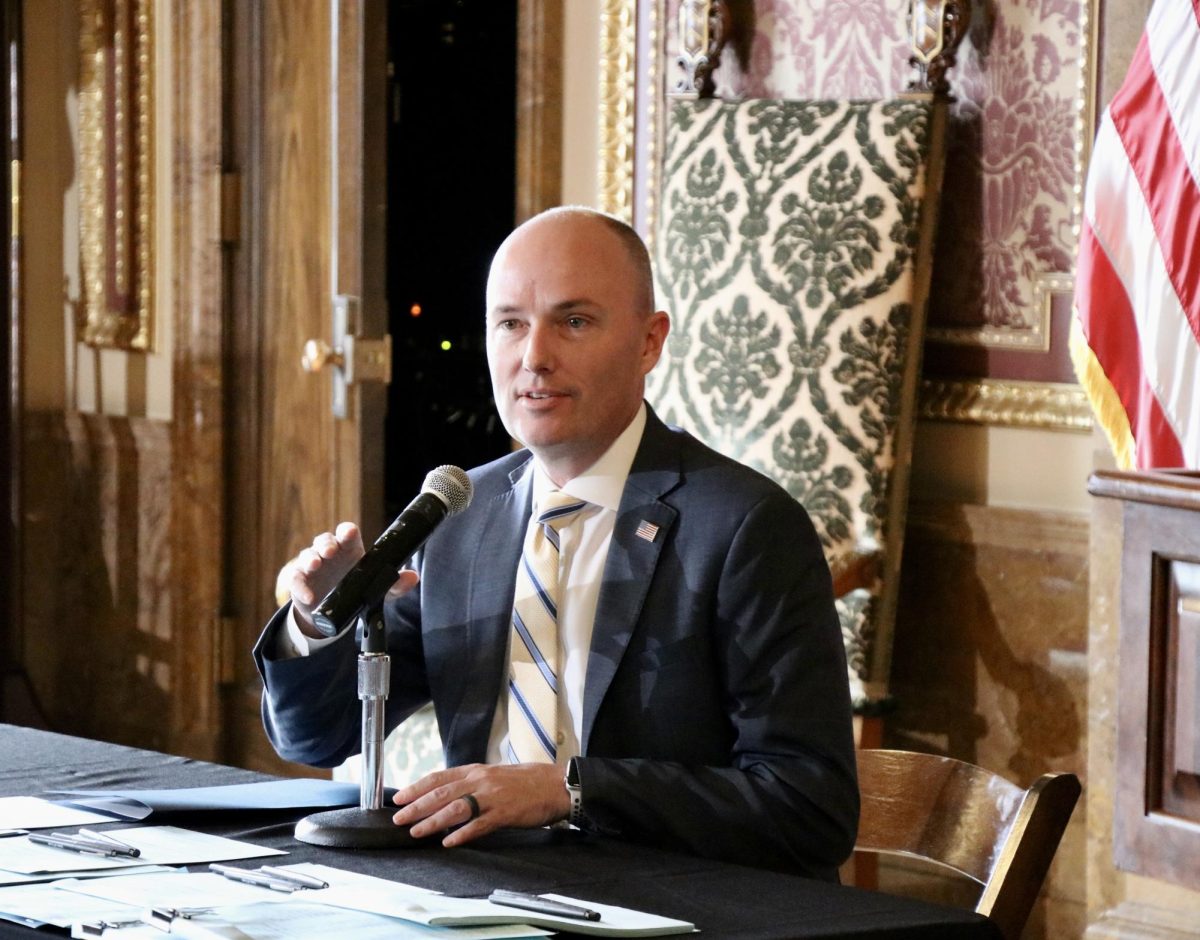The 2024 Utah state legislative session came to a close on March 1, where a record 591 bills were passed in 45 days. As of March 13, Gov. Spencer Cox has signed 245 into law.
Of the 103, Cox signed 74 bills on March 12, including bills about public and higher education, student resources and environmental issues.
H.B. 438 was signed, allowing university presidents the authority to review tenured and post-tenured professors to determine their “effectiveness” at the institution.
Tenure is a title awarded to professors who have worked five to 10 years and exemplified excellence in scholarship, teaching and service in their field. Once granted tenure, professors are also granted job security. Under H.B. 438, tenured professors could face unemployment.
More bills passed regarding higher education included H.B. 19, Higher Education Financial Aid Amendments, redefining the term “fees” to include additional expenses for National Guard members receiving in-state, financial assistance from the National Guard and ensuring proper administration throughout the program.
As issues regarding U student athletes benefiting from name, image and likeness contracts, arose this year, H.B. 202 included amendments for student athletes and the protection of their identity and assurance of transparency of endorsements received from third parties totaling more than $600. The bill also exempts NIL deals from the Government Records Access Management Act. The Crimson Collective reportedly provided football players on scholarship with NIL deals including a Ram truck with expenses covered by private donors.
The campus safety enhancing bill, H.B. 332, requires institutions of higher education to report campus safety plans, identify resources for safety training curriculum and report annually on the implementation of the plans, as well as crime statistics to the Education Interim Committee and the Law Enforcement and Criminal Justice Interim Committee.
More controversial bills, which were signed earlier during the session, included H.B. 261, which bans the use of diversity, equity and inclusion within state-funded organizations and schools. Universities are already feeling the effects of the bill. Utah Valley University renamed its DEI office — “Office of Institutional Engagement and Effectiveness” in early March.
H.B. 257 bars transgender people from using state-funded public restrooms that do not align with their gender assigned at birth. The purpose of the bill being to protect women and eliminate bullying.
Two banned book bills were introduced by Rep. Ken Ivory (R-West Jordan) during the session.
H.B. 29 banned books including “pornographic or indecent material,” from school libraries, and further allowed school districts to ban books throughout the state.
Floor sponsor Sen. Todd Weiler (R-Woods Cross) explained if three school districts or five charter schools ban “pornographic” books, those books would be banned throughout the school districts of the state. However, if school board members add those books to the agenda within 60 days, they could vote to keep them.
The accompanying banned book bill, H.B. 417, originally intended to charge teachers with a misdemeanor if banned books were found in the classroom, resorted to further minimizing student access to sensitive materials, and allowed private legal action against public education administrators.
Included in the March 12 signing was H.B. 453, Great Salt Lake Revisions, with amendments to water rights from the lake. After reaching a historic low in water levels in 2022, bill sponsor Rep. Casey Snider (R- Paradise) said the bill aims to help restore water to the lake, as reported by Fox 13 News.
Previously, mineral extraction companies were able to use the water as needed. Now, companies will face water usage restrictions just as state residents currently do.
Cox is expected to sign more bills into law within the coming days.



